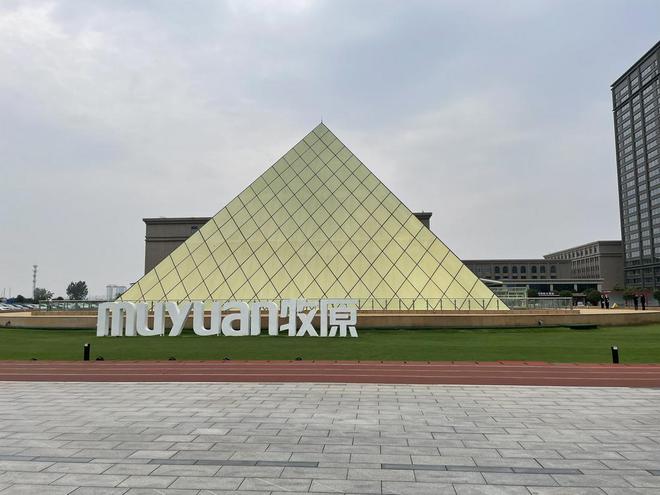China’s biggest pork producer is heavily debt and pricces are falling fast.

Photo by Kuang Da
By ZHANG Xiaodi
Muyuan Foodstuffs, the largest pork producer in China, is extremely sensitive about its funding plans. So sensitive indeed that it recently released 30 self-congratulatory statements about its funding plans in a single day.
Muyuan has, according to itself, secured over 100 billion yuan of loans, to provide liquidity. It’s a familiar story across industries. The current oversupply of pork is the obvious result of over-expansion funded by borrowing. Muyuan is not yet selling assets or defaulting, that’s the way things are heading.
China’s pork industry, with its constant ups and downs, is not for the frail-minded and Muyuan’s founder QIN Yinglin, aged 57, is known as a risk taker. In the early 90s, he quit his stable job to start a pork farm with his wife, persevered through one crisis after another and built an empire, which went public in Shenzhen in 2014. In Muyuan’s headquarters, Qin has placed a giant hog statue right next to a bizarre and inexplicable replica of the Louvre Pyramid. Qin regularly leads employees in paying their respects to the gods of hog farming.

Despite the slightly engaging backstory, Muyuan was just another hog farmer until the swine flu killed nearly half of China’s hog herd. Muyuan avoided large outbreaks in its facilities and made huge profits. Two years ago, it was able to open a 5-billion-yuan state-of-the-art pig farm. Muyuan was raising 60 million pigs a year, around 10 percent of China’s total, and more than its four closest competitors combined.
With an estimated personal wealth of 185 billion yuan (US$25.9 billion), more than that of Alibaba founder Jack Ma, Qin ranked the eighth richest person in China.
China’s hog industry is perennially afflicted by cycles of shortages and overproduction. While small farms, which make up the majority of the producers, are the main victims, large corporations are not immune. The years immediately after the swine flu saw a wave of new entries, consolidations and expansion, fueled by substantial subsidies to rebuild hog stock and prevent another inflation-inducing shortage. Even energy giant PetroChina and real estate developer Wanda toyed with the idea of raising hogs.
Muyuan then decided to outdo its competitors, who were also expanding at all costs and invested huge sums in new farms and automation. From 2018 to 2021, Muyuan's fixed assets ballooned from 13 billion yuan to 99 billion.
The new pig farm, not the fake pyramid, is the pinnacle of Qin’s achievements, at least that’s how Qin saw the project. It's the world's largest, capable of housing 21 million hogs per year. The massive amount of feed, equivalent to 100 truckloads daily, is transported through pipes to avoid paralyzing the nearby highway.
The country rebounded to pre-swine flu levels very quickly and prices collapsed to below cost, about a third of the 2019 peak.
Between 2018 and 2021, Muyuan made 41 billion yuan in profit. But in the same period, debt grew to over 1 trillion yuan, about 61 percent of total assets. In 2021, profits dropped by 75 percent. Over 17 million yuan of invoices went overdue in November 2021. and the financials deteriorated further in the next two years.
Muyuan’s 60 percent debt-to-asset ratio is lower than the industry average, but roughly 80 percent is due this year. Short-term loans doubled in the first three quarters of 2023.
Typically, companies cut production during surplus periods. Until recently, most pork producers had been waiting for their competitors to make the first move. Given its mounting debt and diminishing liquidity, Muyuan has adjusted its production forecast downward and dialed back investment.
Capital expenditure is set to decrease to below 2022 levels. A new headquarters is on hold and the aggressive hiring of senior managers that characterized expansion between 2019 and 2020 has all but stopped.
Qin deserves credit, however, for insisting on cost reduction through technology. The company's highly automated farms curb the spread of disease and optimize hog growth.

It has switched to a new feed regime since the Russia-Ukraine war sent the prices of soy-based feed soaring. Muyuan has the lowest cost among all domestic pork producers. In the high-concentration, low-margin regime the pork industry is quickly entering, and it is not a bad position to be in.